Coronavirus: How will the epidemic affect the Australia-China relationship?
Claims of a coronavirus cover-up from China have led to calls for a rethink of our Australia’s relationship with the communist state. But how that occurs and what replaces isn’t easy to work out.
Coronavirus
Don't miss out on the headlines from Coronavirus. Followed categories will be added to My News.
For more than a year, members of the federal parliament have been publicly airing concerns about the reach and power of China’s influence into Australian life.
Now, those concerns have been turbocharged by the coronavirus crisis, with the diplomatic stoush between Canberra and Beijing escalating well beyond the backbench and committee rooms into the heart of the Australian Government.
Home Affairs Minister Peter Dutton has accused the Chinese Communist Party of orchestrating cyber-attacks on Australia and stealing our intellectual property – concerns raised in confidence by intelligence and security officials, but rarely made public by a senior government minister.
In return, China accused him of bigotry and parroting lines from Washington.
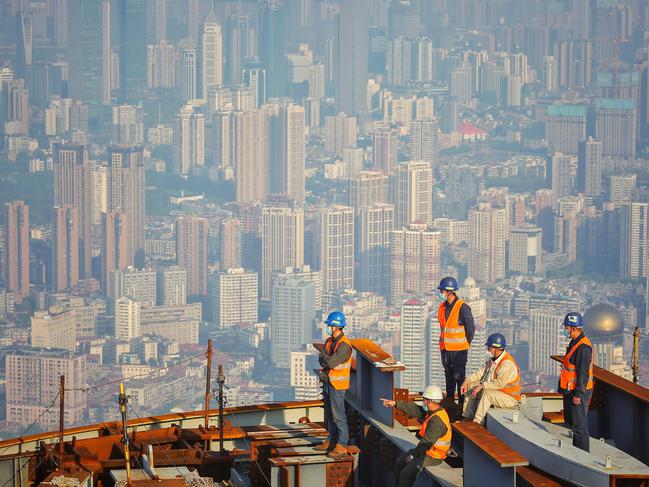
MORE: Dutton lashes WHO over COVID-19 cover-up
Wuhan scientists doing ‘crazy things’ in lab
Human trials based on chimp virus begin
Prime Minister Scott Morrison is lobbying global leaders including US President Donald Trump, German Chancellor Angela Merkel and French President Emmanuel Macron to give the World Health Organisation weapons inspector-style powers to go into China uninvited to investigate the outbreak, which has led to more than 2.7 million being people infected and more than 191,000 people dead across the globe.
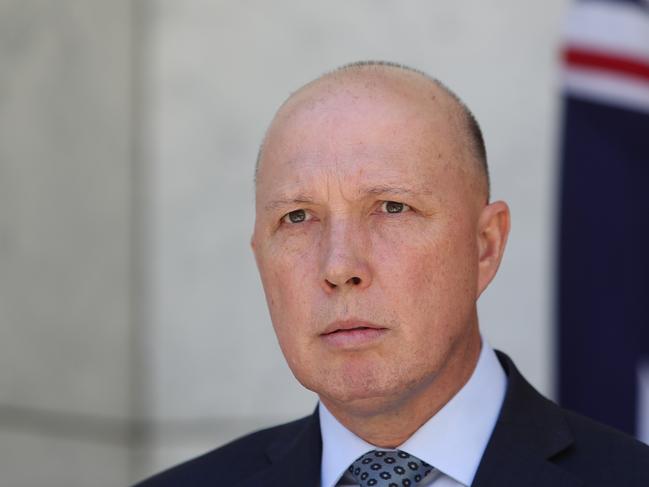
Labor leader Anthony Albanese has also called for greater transparency from China, saying he wished it was a democracy, and supporting Mr Morrison’s bid for the WHO’s powers to be enhanced.
The extraordinary row has serious ramifications for Australia because China is our largest two-way trading partner, trading around $200 billion in goods and services a year. It buys more of our exports, and provides Australia with more foreign students and tourists, than any other country in the world.
Despite these economic links, growing numbers of MPs are now calling for a rethink of the Australia-China relationship once the COVID-19 crisis has passed, led on their respective sides by Liberal Andrew Hastie and Labor’s Anthony Byrne, the chair and deputy chair of the Parliamentary Joint Committee on Intelligence and Security. At least 11 backbench MPs across several parties have now spoken publicly and critically against China on issues ranging from foreign interference to an over-reliance on Beijing by Australian manufacturers and universities.
But the Australia-China Relations Institute at the University of Technology Sydney said the outbreak of the coronavirus had simply given those already opposed to a close China-Australian relationship an “opportunity to push their case.’’
Economist James Laurenceson, the institute’s director, said: “the people who are pushing for a new Australia-China relationship after the coronavirus outbreak are the same people pushing for a different type of relationship beforehand.
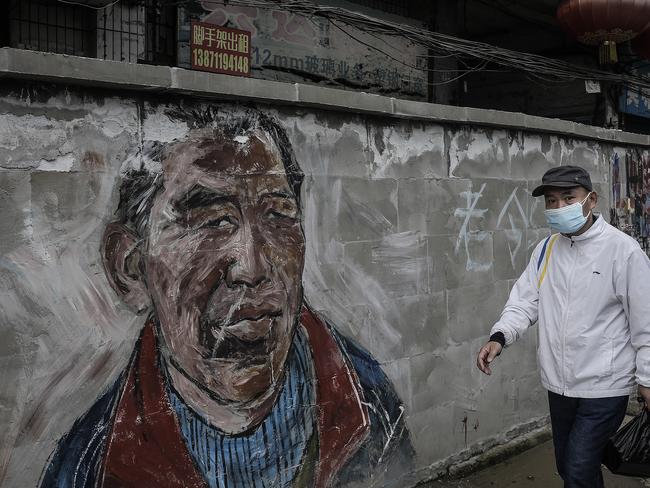
“The Andrew Hasties of the world, they’ve got a particular view of the China relationship, I would argue it’s one that has quite a strong ideological element to it, and they’re continuing with their campaign.
“Anthony Byrne has got a pretty long-standing record of lining up with Andrew Hastie on aspects of Australia-China relations – and that’s all fine, I’m just making that as an observation.’’
Professor Laurenceson said the pandemic had provided “further ammunition’’ for parliamentarians who were in favour of “economic nationalism.’’
And while he welcomed a debate on the issue, he said those criticising the relationship between the two countries had not fleshed out how the alternative would work.
“I think there’s a very sensible discussion to have about whether the Government should expand its strategic stockpiles. We already have a strategic stockpile of fuel and face masks; do we want to expand that to include a couple of other goods?’’ he said.
“But you very quickly run into a scenario where it’s a big mess and it’s far too costly for Australian taxpayers to handle.
“I do notice that when people talk about re-establishing, bringing it home, they’re very vague on the details. They never talk about which goods could be in, which goods could be out, which industries should be supported, which industries shouldn’t.
“You see the same story on the export side of things. You hear, ‘we should diversify our markets’. Well, great, we can all agree that would be lovely. But how practical is that? America doesn’t want our stuff. Europe doesn’t want our stuff. China does.
“We’d like India to buy more but there’s another problem there: they don’t have the purchasing power to pay for it. All of these ideas sound wonderful but the practice of them isn’t easy at all.’’
The Australian-China Relations Institute, which bills itself as a non-partisan think-tank, was established at the UTS in 2014 by two Chinese businessmen including Huang Xiangmo, the prolific networker who has poured at least two million into the pockets of the major political parties, and who appointed former Labor premier and foreign minister Bob Carr to be the institute’s first director.
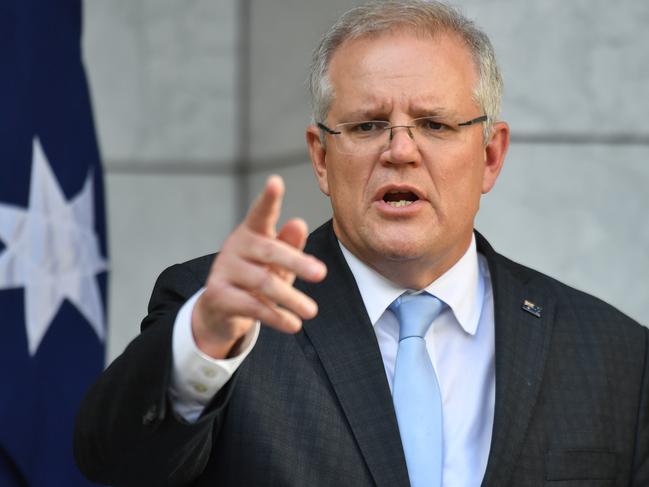
In 2018, Mr Huang’s application for Australian citizenship was rejected and his permanent residency revoked on national security grounds, amid fears he was operating as an agent of foreign influence. He denied close links to the Chinese Communist Party, or being a foreign agent, and has not funded the think tank for several years.
Prof. Laurenceson, who was Mr Carr’s deputy and replaced him as director, said he had not shied away from criticising the Chinese government over the coronavirus outbreak.
“There’s some genuine issues here,’’ he said.
MORE: Australia establishes national fuel reserve
How Aussie drones could stop COVID-19
“We would have been in a better situation if they were more transparent and if they allowed more freely-flowing information, so there’s no debate about that.
“My point is, that characteristic of China and the Chinese government and the Chinese Communist Party is not remotely new.
“People have had doubts and questions about Chinese economic data for decades and the idea that the Chinese Communist party puts its own interests before the interests of other countries, well gee, that’s not remotely surprising.
“What I am curious about is why they (the China-sceptic MPs) are suggesting this is such a new phenomenon when in actual fact we’ve been dealing with this for years and we’ve become very good at dealing with it.’’
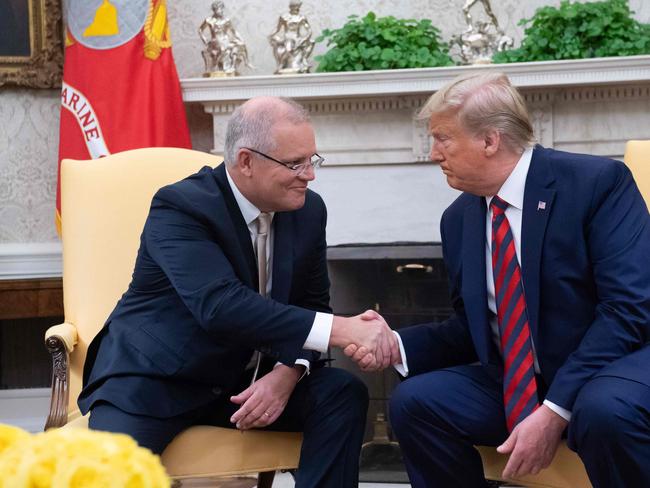
Prof. Laurenceson said the Canberra-Beijing political relationship did not affect the two countries’ business relationship.
“We haven’t had an Australian prime minister invited to China since 2016 but guess what, our trade with China right now is at record highs,’’ he said.
“This idea they’re always linked is simply not borne out by facts and evidence.
“No-one would dispute the fact that the political and diplomatic ties with China have been very rocky since 2017 but I can point to the trade data – it’s not coming from the Chinese government, it’s coming from the Australian Bureau of Statistics – which says we have never traded a bigger amount with China and we have never traded a broader basket of goods and services than we are right now.’’
On Thursday, the ABS released preliminary international goods trade figures for March, which showed a 16 per cent rise compared to March last year in the value of exports, strongly driven by iron ore exports to China.
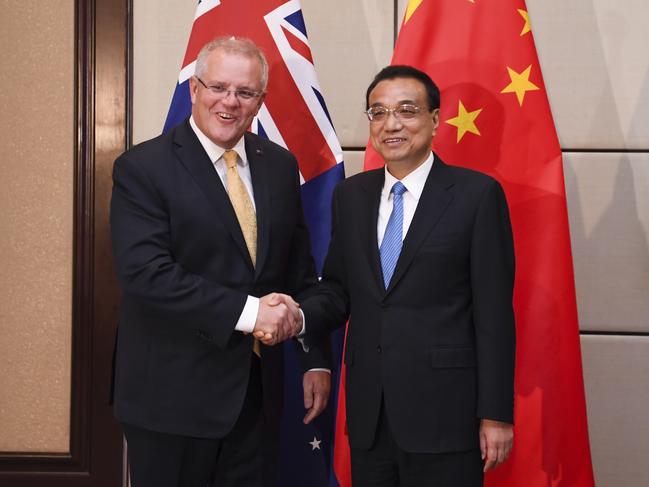
The report also showed how heavily Australia relied on goods purchased from China.
“China is Australia’s largest source of imports, accounting for, on average, around a quarter of the value of all imports,’’ the ABS said.
It found imports from China had fallen 41 per cent from January to February, when the country was on coronavirus lockdown, but risen again in March.
“Driving this increase were increases in imports of consumer electronics such as mobile phones and laptop computers as well as electrical machinery,’’ the ABS noted.
As the full health and economic catastrophe of the coronavirus outbreaks becomes clear there is growing global pressure on China on a range of issues, including further calls in the UK for the Johnson government to reverse its decision to allow Chinese telco Huawei to build part of that country’s 5G network.
Former independent Senator Nick Xenophon, who has been an outspoken critic of China in the past and helped kill off attempts to ratify an extradition treaty between Australia and China, now works as a lawyer for Huawei.
The company continues to raise its profile in Australia despite the Australian Government banning it from involvement in the 5G network here on national security grounds.
Mr Xenophon said his concern as a lawyer was to ensure Huawei was afforded due process.
“I’m not their (Huawei’s) spokesman. These are my views,’’ he said.
“My view of Huawei is they’re the most unfairly and maliciously maligned company in Australian corporate history.’’
He said the company had offered to co-operate with all national security concerns, provide hacking safeguards, move production offshore and sell intellectual property in the west, all to no avail.
The Government and most of its Five-Eyes intelligence partners had preferred European rivals Nokia and Ericsson, despite much of their equipment also being made in China by companies with strong links to the Chinese Communist Party.
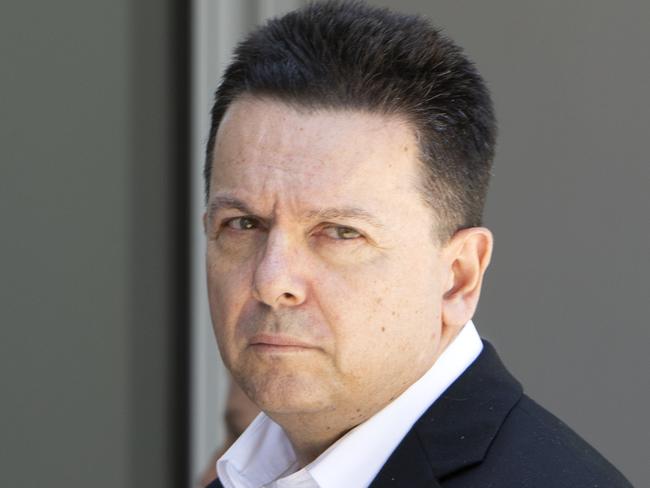
“I guess what I’m concerned about is – whether it’s from the left to the right and everywhere in between – it seems that … we’ve thrown rationality out the window and people have been whipped up into a frenzy in terms of this,’’ Mr Xenophon said of doing business with China and Hauwei.
“It’s important there be a debate based on fact and reason rather than fear and hysteria.’’
Mr Xenophon said elements of the debate had become anti-Chinese rather than about the failings of the Chinese government.
“It seems to me that the dog-whistling has given way to the foghorn in the sense that there’s nothing subtle about it.
“But I think we need to understand, we need to have a mature relationship.
“And that doesn’t mean we don’t take issue with the failings of the Chinese Government and the Chinese state.’’
“You won’t get me being an apologist for the Chinese state ever but I will stand up for Hauwei which I think has been treated unfairly.’’
